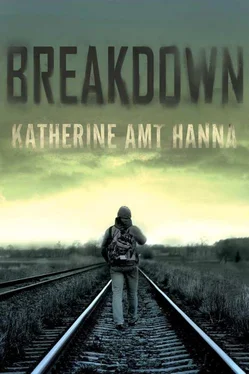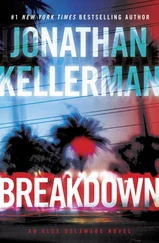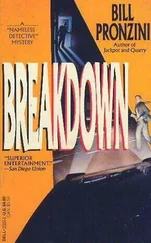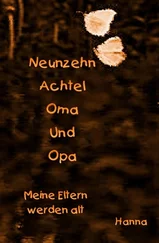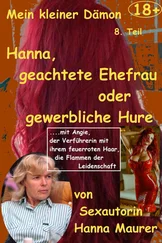“Huh,” he said softly.
“I thought you might like to have that.”
“Thank you.”
“I have some others. I’ll show you tomorrow, or whenever.”
Chris looked up from the photo, his eyes bright. “I’d like that. I haven’t any left.”
Chris’s tone and what the statement implied wrenched at Jon, and unexpected emotion welled up without warning. “God, I missed you,” he rasped, his throat tight. “I’m so glad you’re here.”
“Me, too,” Chris nodded. He put the picture down, seemed to hesitate, then took two quick steps toward Jon and hugged him hard. “It’ll be okay,” he said as Jon hugged him back. Jon had to work to keep the tears out of his eyes. He nodded against his brother’s shoulder. “It’ll be okay,” Chris repeated, as he’d done when they were decades younger, reassuring his brothers when their mother had locked herself into her bedroom to cry out her despair alone into her pillow. Chris had promised them it would be okay, every time, and then he would stand at her door, pleading with her until she let him in, and he’d sit with her, rubbing her back, dry-eyed and unflinching, while she sobbed. In later years she would tell them that Chris had always given her the strength she needed to go on. Jon pulled away, took deep breaths to calm himself.
“Should we go down now?” Chris said, his voice barely audible.
“You don’t have to.”
“I know. No reason to put it off.”
“Okay,” Jon agreed. He put his hand on the doorknob.
“Oh, wait—” Chris said, and rummaged in his duffel. He pulled out a cube wrapped in old gift wrap and tied with string, about the size of a half brick, but obviously not that heavy. He picked up the supper plate, too. “Okay, lead on.”
Jon took the plate from him and led Chris downstairs.
Simon had focused on practicality where most of the house was concerned, but the sitting room retained the grandeur of days gone by. Ornate paneling and moldings decorated the walls; dark wood floors showed around the edges of thick carpets. A richly carved mantel surrounded a fireplace in the middle of the far wall, but no fire was lit on this mild summer night. Heavy velvet drapes hung on the tall windows. Even with Brian’s grand piano in one corner, plenty of room remained for enough furniture to comfortably seat the whole group. Simon had brought in some of it when he remodeled the house. The rest had come from Brian’s house in Bath.
All heads turned toward Chris and Jon as they entered the room. Fiona sat on a large settee; Alan and his wife, Vivian, on a sofa. Simon had claimed one of the window seats, David the big green armchair on the right. Laura perched next to him, half sitting on the arm of the chair, her fingers playing with the hair at the back of his neck. Only Brian wasn’t seated; he lurked in the far corner behind the piano, pretending to look for a book on the shelves.
Laura was the first to move. She rose with an uncertain smile, said Chris’s name under her breath.
Chris’s mouth opened as he looked at her, but he said nothing. His expression was as hard to read as it had been since he arrived. He took one step toward her, and she closed the gap.
“Welcome home,” she said as she hugged him. His return hug seemed tentative to Jon.
“Your hair is different,” Chris said as they parted.
“So is yours,” she countered, her eyes bright, and self-consciously put a hand up to push a strand of straight brown hair, now touched with grey, back behind her ear.
“I’m so glad you’re okay,” Chris said. “You look good.”
“You look thin,” she said, and Chris shrugged.
Simon jumped up off the window seat and crossed the room with his hand out. “Chris,” he said with a nod, “good to see you again. Glad you’ve found us.” After a moment of hesitation, Chris shook his hand—something most people did not do anymore—and nodded back.
“Thanks.”
David had stood at the same time, stepped in front of Laura, and also put his hand out.
“This is David Rigg,” Simon said, and Chris shook his hand as well. David stood a head taller than Chris, with thinning pale hair and small, round glasses.
“Nice to meet you,” David said, and then retreated quickly back to his chair, taking Laura’s hand and pulling her down onto his lap possessively as he sat down.
“You’ve not met Vivian, Alan’s wife, have you?” Simon went on. He pointed to where Alan shared the sofa with Viv, small and blond. She smiled a warm, understanding smile and said hello in her high, sweet voice.
Chris nodded at her. “Good to meet you,” he said. Then, “Hello, Alan.”
Alan Frasier had worked with Chris and Brian for many years. After the breakup, he’d formed a partnership with Brian, steering him in lucrative directions.
“Good to see you again, Chris,” Alan said.
“Wine?” Simon asked, trying to ease the tension without actually being jovial.
Chris’s eyebrows went up. “Yes, please.”
Simon moved to the sideboard. “We’ve an excellent winemaker right here in Hurleigh,” he said to Chris. “We always break out a bottle for special occasions.”
“Come sit down, Chris,” Fiona said, putting her hand on the cushion next to her. Chris turned a bit, and Jon saw the closest thing he’d seen to a smile yet.
“Sorry about supper,” Chris said to her as he sat down, leaving as much gap between them as he could. He still had the gift-wrapped cube in his hand. He tucked it into the space between his leg and the arm of the settee.
“Oh, don’t worry about that,” she said. “You must be exhausted after walking nearly from Portsmouth.”
Jon took the armchair closest to Chris as Simon came over with two glasses. He gave one to Jon.
“So you came over on a ship?” Simon asked as he handed Chris the other wineglass. “From New York?”
“No, from Canada, actually. Halifax. Easier, with a British passport.” Chris sipped the wine. “This is nice. Thanks.”
“But they don’t take passengers?” Vivian asked.
“No, I had to work my way over. And it wasn’t so easy getting on. I had to work in the shipyards for a year before I got a place.”
“What’s it like in the States?” Alan asked him.
Chris did the pause-to-think that Jon had already become familiar with. He sipped his wine to cover it.
“Not so different from here, really,” he said to the room at large. “Certain areas were hit harder than others, at first, but it all degraded pretty fast. There was this overall sense of outrage that something hadn’t been done to stop the whole thing. Sometimes it seemed that to them the loss of convenience was worse than—” He stopped, blinked.
Jon watched Chris take a breath, try to keep his face casual. A short silence in the room threatened to become awkward, then Chris went on.
“I traveled around for some time, after—after I was alone,” he said, keeping his tone as even as possible. “I went to Baltimore, a few other places. Ended up back in New York, but it was no good there, so I set out for Canada. Didn’t make it. We got jumped on the road by a gang. They nearly killed me.”
The women made little noises of concern; Jon found it hard to swallow the wine he’d just sampled. The “nearly killed” part was the worst, but he had caught the “we” and wondered if anyone else had. Chris went on with hardly a pause.
“Luckily, another group came along just in time and rescued me. I ended up at a monastery, of all places, nursed back to health by the monks. They had a nice little commune going. I stayed for nearly two years.” He stopped to have some wine. The room was quiet, all of them holding back, waiting for him to go on, having decided at supper that tonight was not the time to grill him about what had obviously been a hard and painful journey. Jon got the impression that Chris had already decided what he was going to tell them. “Opportunity arose to go out with a team heading north,” Chris went on, “so I took it. We’d heard there were ships coming over. I left them and made it into Canada on my own. Eventually got on a ship.”
Читать дальше
